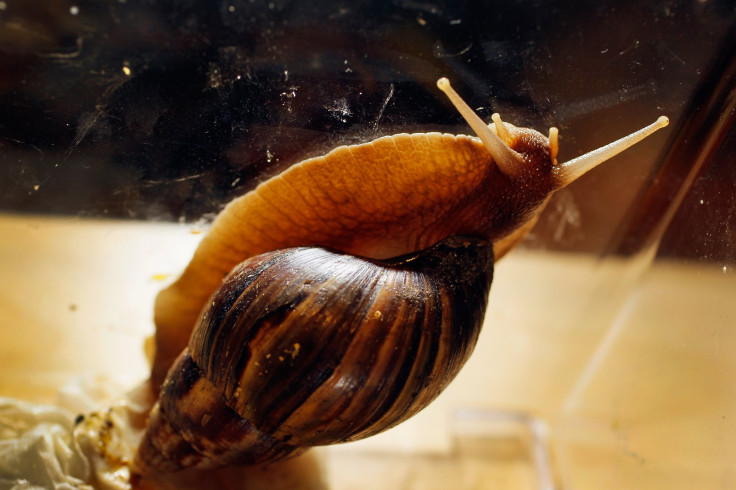
Florida has a new pest that's been threatening the state for a while now. This time around, the giant African land snail, a mollusk that grows as a big as a rat and boasts a voracious appetite for stucco and just about any green leafy thing, has been spreading around, causing fear among the population.
The snail can sometimes carry a parasite called the rat lungworm that can cause meningitis, with the infection passed on to humans either by consuming raw snail or slime-smeared unwashed produce or by rubbing the mucus in your eyes, nose or mouth. Although no cases in Miami-Dade have been traced to snails, state scientists have found the parasites in some captured snails.
Nevertheless, Florida officials trying to eradicate the Giant African Land Snail, plan to deploy a new weapon in the battle - Labrador retrievers. State agriculture authorities say they hope the dogs will add to their success in fighting an infestation of the slimy snails, which were first spotted by a homeowner nearly two years ago and quickly swept through the Miami area.
Since the snails appeared in 2011, state and U.S. Department of Agriculture officials have collected more than 120,000 of the mollusks, but Florida Agriculture Commissioner Adam Putnam, refused to speculate on when his department might declare victory. "We see a lot of strange things in Florida and this one makes the top of the list," said Putnam. "It is a very serious pest."
Putnam and other state and federal agricultural officials credited an intensive attack against the fast-breeding and destructive exotic for turning the tide. "The population is starting to nose dive," said Richard Gaskalla, director of the division of plant industry for the Florida Department of Agriculture and Consumer Services. Over the last two years, a full-time crew of 50 workers has collected 128,000 snails from 576 properties in 21 hot spots across the county, ranging from Homestead in the south to Carol City in the north. The program has been expensive. At $7.8 million to date - with $1.4 million coming from the state and $6.5 million from the U.S. Department of Agriculture - it breaks down to about $61 per captured snail.
But Putnam said the effort was worth it to control an invader he called a "triple threat" because it poses potentially serious dangers to the natural environment, the state's $100 billion agricultural industry and human health.
Canine detectors, including a Labrador retriever being trained to sniff out the snails, will soon be joining the efforts to stop this pest. "They're very good at detecting the Giant African Land Snail," said Gaskalla. "So we're building four-legged technology into this program as quickly as we can." Although the Giant African Land Snail has no natural predator, posing a challenge to eradication efforts, it can give off a strong odor that dogs can be trained to detect.
Officials say they believe they have contained the snails to the Miami area, and Gaskalla said the program was showing success, with a sharp drop in numbers found. "The number of detections this last year were in the thousands; now they are down to around 200 to 300 a week," he said.
© 2025 Latin Times. All rights reserved. Do not reproduce without permission.




